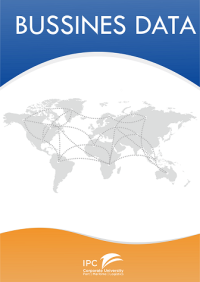Business Data
Government Initiatives To Localise Drug Production Will Reduce Reliance On Imports
Indonesia ' s pharmaceutical market, the largest in South East Asia, will see continued foreign drugmaker investment and the manufacturing of pharmaceutical raw materials in the country will increase following the revision of the country's Negative Investment L ist. In addition, t he government ' s incentive to develop the domestic pharmaceutical industry and reduce its reliance on imports will be further reinforced by reforms pushing for the localisation of pharmaceuticals , allowing local drugmakers to diversify their supply chain and mitigate their exposure to foreign exchange effects. The importance of Indonesia as an emerging market opportunity for multinational pharmaceutical firms will remain over the coming years given its vast growth potential. As the largest medicine market in South East Asia at IDR85,551bn (USD6.4bn) in 2016, pharmaceutical sales in Indonesia are larger than those in Malaysia and the Philippines combined. This dovetails with the positive outlook for Indonesia's pharmaceutical sector, with a 10-year compound annual growth rate of 9.7% in local currency terms putting it ahead of Thailand (5.5%) and the Philippines (4.2%). Factors shaping this positive trajectory for the Indonesian medicine market include rising household incomes, a larger chronic disease burden and the rollout of universal healthcare. While we continue to remain cautious about the sustainability of the country's universal healthcare programme (see ' Universal Healthcare Enrolment To See Gradual Gains ' , 24 January 2017), the scheme has served to galvanise the sector, encouraging greater investments from both healthcare providers and pharmaceutical firms, which will foster stronger growth.
Ketersediaan
Informasi Detail
- Judul Seri
-
-
- No. Panggil
-
BD BMI g
- Penerbit
- London : BMI Research., 2017
- Deskripsi Fisik
-
3 p.
- Bahasa
-
English
- ISBN/ISSN
-
-
- Klasifikasi
-
BD
- Tipe Isi
-
-
- Tipe Media
-
-
- Tipe Pembawa
-
online resource
- Edisi
-
-
- Subjek
- Info Detail Spesifik
-
-
- Pernyataan Tanggungjawab
-
BMI Research
Versi lain/terkait
Lampiran Berkas
Komentar
Anda harus masuk sebelum memberikan komentar

 Karya Umum
Karya Umum  Filsafat
Filsafat  Agama
Agama  Ilmu-ilmu Sosial
Ilmu-ilmu Sosial  Bahasa
Bahasa  Ilmu-ilmu Murni
Ilmu-ilmu Murni  Ilmu-ilmu Terapan
Ilmu-ilmu Terapan  Kesenian, Hiburan, dan Olahraga
Kesenian, Hiburan, dan Olahraga  Kesusastraan
Kesusastraan  Geografi dan Sejarah
Geografi dan Sejarah